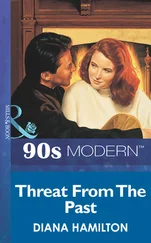“ The youngest captain, Harry!” Jack wrote from Washington. “That was what I was for a couple of years, and by hell did I rub Pa’s face in it? Then for a while I was a youngish captain, now I’m just a reasonable age to be a captain. It won’t be long before I’m an old captain. Then like thousands of other captains I’m going to have to decide whether to retire and strike out in civilian life, fifteen years behind all the other guys (with you and Dad laughing in my face), or stay on and face the possibility of a very sad career indeed. Jesus, when Napoleon was my age he’d conquered the world once and was thinking about making a comeback! When Alexander the Great was my age he was dead! I know I’m a good soldier, Harry, but there’s no way of showing it. On parade I just look the same as all the other guys. You remember Schultz? The geek nerd I told you about before? He’s in Washington too and he has equal seniority with me!! Equal!! I mean, he’s a decent guy and all that, but Jesus! He has the strategic instincts of a lemming!”
Harry was in no doubt what Jack should do. He told him to cut his losses and get out.
“ Never,” Jack wrote back. “The army is my life and I will never give it up, no matter how badly it treats me.”
The truth was that Jack had already cut his losses. He had given up Polly in pursuit of military glory and whether he found that glory or not, he could never get back what he had lost.
As for Polly, she was in a much worse position than Jack. As the eighties turned into the nineties she was without a proper home, without possessions, without qualifications or security of any kind, and she was lonely.
She went to live in a squat in Acton, a sad house with boarded-up windows that had been repossessed by the council because they were widening the A40 to Oxford. It was occupied mainly by the warriors of Class War, a loose collective of malcontents made up principally of Oxbridge graduates who wanted to destroy the state, probably because unlike most of their friends they had failed to get high-ranking jobs at the BBC.
At twenty-five Polly knew that her life was twisting downwards, out of control, but she did not know how to stop it. All her old friends were young professionals with incomes. Polly no longer saw them, but her mother, of course, kept her informed about their huge successes. Most of Polly’s more recent friends were either stoned, in prison or chained to lumps of concrete in tunnels underneath the roadworks on Twyford Down. The new decade had also brought with it the threat of war in the Middle East, which was most depressing for Polly, since if there was one meaningful thing she had tried to do over the previous eight years it was fight for peace.
By a strange twist of fate it was because of Saddam Hussein that Polly came to see Jack again, if only for a moment and only on the television, but it was a painful shock none the less. It was in January 1991 and Polly and friends were lying around their squat on their damp mattresses watching the military build-up in the Gulf through the window of their tiny black and white portable television screen. John Major had just been speaking about the need to stand up to aggression and tinpot despots wherever they reared their heads.
“Ha!” said Polly earnestly. “If Kuwait dug potatoes instead of oil we wouldn’t give a toss about them. We didn’t mind about tinpot despots in Chile and Nicaragua, did we? And why? Because they were our tinpot despots, weren’t they?”
Polly was just working herself up into a fair state of righteous anger when it happened. Suddenly, Jack was in the room. Standing in front of a tank, now a full colonel, and giving it as his opinion that Saddam’s men were lions led by donkeys.
“We don’t want to have to kill these soldiers,” Jack said from within the tiny TV, “but let the butcher of Baghdad be under no illusions that we will kill them, and we will kill them quickly and efficiently.”
Polly felt like she had been kicked. It was so unexpected and over so soon. While her companions continued to argue with the talking heads on television she retreated to the kitchen, all the anger and hurt welling up inside her once again.
And the love.
He still looked beautiful to her. Achingly so. Even in one of those awful Wehrmacht-style helmets that the Americans had taken to wearing at that time. He looked so commanding and so confident, so strong, forceful and fit. All of a sudden Polly found that she did not just miss Jack, she was jealous of him. Jack knew what he wanted, he knew where he was going, he always had and he was still on the winning side. Polly wiped the silverfish off the breadboard and started to cry.
Jack stared at Polly and smiled.
She was still lovely. Her home might be dowdy and her possessions rather run down and few, but she lit up that room like a searchlight, like a bright star. Jack swallowed hard. He had not expected it, he really had not expected her still to be so very beautiful. As far as Jack was concerned, the passage of time had completely failed to dull her loveliness.
“I don’t think you changed, Polly,” he almost whispered. “You didn’t age a day.”
“Bollocks, Jack.”
Jack laughed. “Now there’s a word I haven’t heard in a long time. But really, how did you do it? Is it some face cream made out of dead whales, or do you have a portrait in your attic of some terrible dissipated old hag?”
“This is my attic, Jack. I live in it.”
Now that Polly had got over the initial shock of Jack’s arrival it was beginning to dawn on her how strange the situation was.
“I don’t know why I’ve let you in. I was asleep… The place is a mess… Why have you come back?”
“Why do you think, Polly? Why do you think I’ve come?”
“How the hell would I know? I don’t even know you.”
“You know me, Polly.”
“I know you’re a bastard!”
Jack shrugged.
“It is nearly two thirty in the bloody morning, Jack!”
“I do unusual work,” said Jack, shrugging again. “Where I come from we keep strange hours.”
He was just the same. Still arrogant, still forceful.
“Yes, well, back here on earth we tend to sleep in the middle of the night!”
“May I take off my coat? May I sit down?”
It was the small hours of the morning. He’d been gone for donkey’s years and he wanted to take off his coat and sit down. Polly’s mind reeled.
“No! This is absurd. I don’t know why I let you in at all. I think you should go. If you want to see me you can come back in the morning.”
“I’ll be gone in the morning, Polly.”
This was too much for Polly. It was hardly what might have been called a tactful thing to say, considering how they had parted the last time they’d been together.
“Yes, well, some things don’t change, then, do they, you… You…”
Polly bit her lip and fell silent. Of course she was angry with him, angry with him for leaving her and angry with him for coming back in such a strange manner. But, for all that, she was so very glad that he had come back.
“It’s just I’m only in Britain for a few hours, Polly. This was the only time I could come.”
“Jack, it’s been, it’s been… I don’t know how long it’s been…”
“Sixteen years.”
“I know how long it’s been!”
As if she could forget. As if she didn’t remember every moment of that summer and every day that had passed since.
“Sixteen years and two months, to be precise,” said Jack, who seemed also to have been carefully marking the passage of time.
“Exactly! Exactly. Sixteen years and two months, during which time it appears that you have been more than capable of getting by without seeing me, and you want to visit me now!”
Читать дальше












